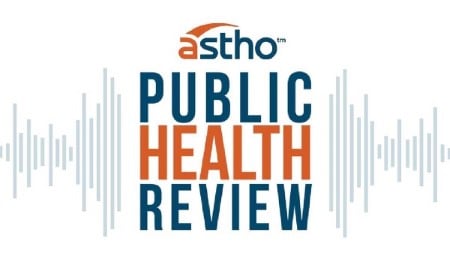Public Health Review is our podcast that features public health and thought leaders who tackle everyday issues impacting the communities they serve. The series capitalizes on current public health trends and provides listeners with valuable information.
Every month we explore innovative topics ranging from time-sensitive updates on COVID-19 related concerns to social and behavioral health, emergency preparedness, infectious disease, environmental impacts, and health disparities. We also help listeners stay informed by answering driving questions like the future of health care and the public health workforce, how COVID-19 has affected the mental wellbeing of the population, and what roles governments should play in ensuring public health safety.
Our guests include state and territorial health leaders, health agency staff, federal government officials, and ASTHO leadership.
Listen to us on Apple Podcasts, Amazon Music, and Spotify.
Episodes







Using Business Process Improvement to Address Procurement Challenges in Guam
Learn More
Working Strategically Across Agencies to Maximize Investments in the Social Determinants of Health
Learn More


